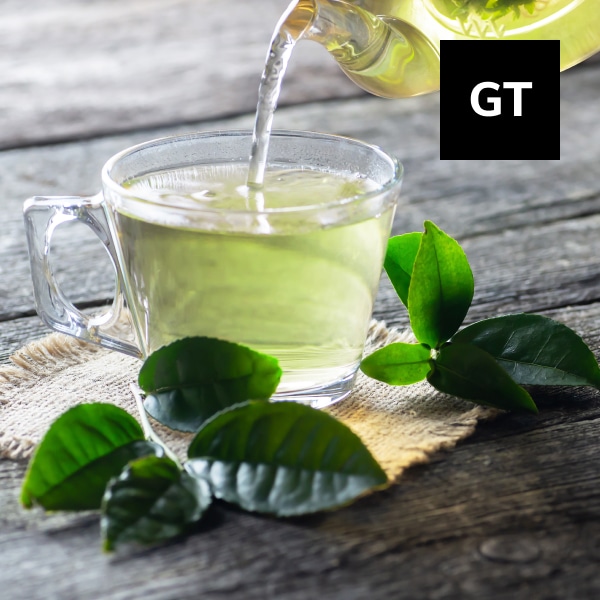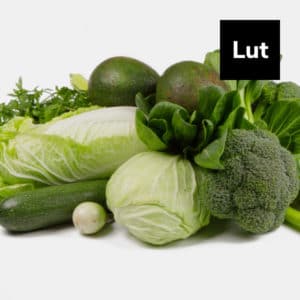Overview
Green tea has been used as a healthy beverage for thousands of years because it has a pleasant taste, provides hydration, and produces a warming and relaxing effect. It is experiencing a huge surge in popularity as millions of people all over the world drink it for its numerous health benefits.
Key Benefits
- Provides antioxidant protection
- Supports healthy blood lipids
- Reduces platelet aggregation
- Enhances weight loss
- Supports healthy glucose levels
- Protects against UV radiation
- Promotes relaxation
- Supports brain function
History of Usage
Green tea has been used throughout Asia for thousands of years to promote longevity, improve mental function, and prevent disease. But it is only within the past 30 years or so that green tea has become a popular healing tonic in the West. As a result of both historical accounts and current research, green tea has gone from a simple beverage to a functional food with ample evidence of its health-promoting properties due to its natural components.
Biochemistry
Green tea leaf (Camellia sinensis) contains 30 mg of caffeine per 8 ounce cup, brewed coffee contains 135 mg. of caffeine per 8 ounces cup, and decaffeinated coffee contains 5 mg. of caffeine.
Green tea contains polyphenols, natural compounds that reduce inflammation, catechin called epigallocatechin-3 gallate (EGCG), and other antioxidants that help prevent cellular damage. Studies confirm that tea catechins are effective in suppressing increases in glucose and insulin concentrations in the blood. The fact that blood sugar levels tend to rise with age makes this a critical anti-aging benefit. Numerous studies indicate that EGCG lowers appetite, body weight, blood sugar, and insulin levels.
Tea polyphenols also inhibit the activity of amylase, a starch-digesting enzyme found in saliva and in the intestines. Starch is broken down more slowly and the rise in serum glucose is minimized, which reduces food cravings after eating a meal. Insulin is the most fattening hormone in the body, and together with cortisol, the most pro-aging hormone. When used as a nutritional supplement, Green Tea provides a plethora of benefits associated with calorie and insulin regulation. When used as a nutritional supplement, Green Tea provides a plethora of benefits associated with calorie and insulin regulation.
Green tea contains theanine, an amino acid that has been found to decrease neuronal excitation and alleviate anxiety and stress.
Recent Trends
The global green tea market was worth $12.80 billion in 2019 and is expected to hit $23.66 billion by 2027, growing at an annual rate of 8%.
The market is driven by rising demand for nutrient-rich beverages to lower health hazards. Research and innovative ways to develop novel tea varieties also support green tea market growth. Technological advances to create unique tea packaging are also likely to drive future market expansion.
Green tea capsules and pills are projected to gain popularity as consumers increase their consumption of nutritional supplements. Green tea is produced in the form of tea bags, loose leaves, loose powder, and ready-to-drink liquid extracts, capsules, and tablets.
Precautions
- Green tea is safe for most people.
- People who have severe caffeine sensitivities might experience insomnia, anxiety, irritability, nausea, or upset stomach after consuming green tea products.
- If taken with a stimulant drug, it may increase blood pressure and/or heart rate. In rare cases, green tea may negatively affect liver health if taken in large quantities.
References
- Kao YH, Hiipakka RA, Liao S. “Modulation of endocrine systems and food intake by green tea epigallocatechin gallate.” Endocrinology 2000 Mar;141(3):980-7
- Mancini E, Beglinger C, Drewe J, Zanchi D, Lang UE, Borgwardt S. Green tea effects on cognition, mood and human brain function: A systematic review. Phytomedicine. 2017 Oct 15;34:26-37. doi: 10.1016/j.phymed.2017.07.008. Epub 2017 Jul 27. PMID: 28899506.
- Kimura K, Ozeki M, Juneja LR, Ohira H. L-Theanine reduces psychological and physiological stress responses. Biol Psychol. 2007 Jan;74(1):39-45. doi: 10.1016/j.biopsycho.2006.06.006. Epub 2006 Aug 22. PMID: 16930802.
- Rothenberg DO, Zhou C, Zhang L. A Review on the Weight-Loss Effects of Oxidized Tea Polyphenols. Molecules. 2018;23(5):1176. Published 2018 May 14. doi:10.3390/molecules23051176
- Türközü D, Şanlier N. L-theanine, unique amino acid of tea, and its metabolism, health effects, and safety. Crit Rev Food Sci Nutr. 2017 May 24;57(8):1681-1687. doi: 10.1080/10408398.2015.1016141. PMID: 26192072.
- Sharma P, Montes de Oca MK, Alkeswani AR, et al. Tea polyphenols for the prevention of UVB-induced skin cancer. Photodermatol Photoimmunol Photomed. 2018;34(1):50-59. doi:10.1111/phpp.12356
- Ohishi T, Goto S, Monira P, Isemura M, Nakamura Y. Anti-inflammatory Action of Green Tea. Antiinflamm Antiallergy Agents Med Chem. 2016;15(2):74-90. doi: 10.2174/1871523015666160915154443. PMID: 27634207.
- Ma QP, Huang C, Cui QY, Yang DJ, Sun K, et al. (2016) Meta-Analysis of the Association between Tea Intake and the Risk of Cognitive Disorders. PLOS ONE 11(11): e0165861. https://doi.org/10.1371/journal.pone.0165861




